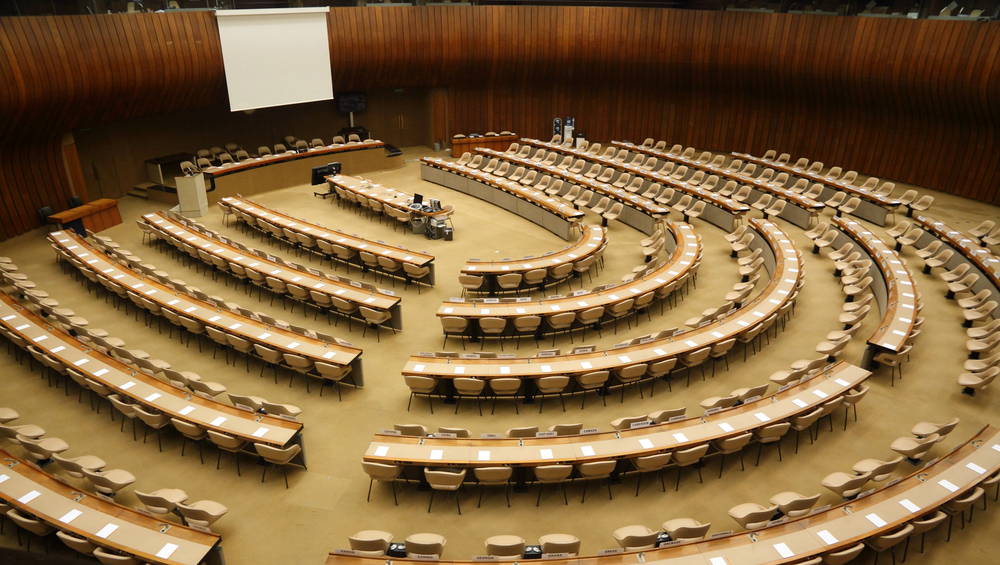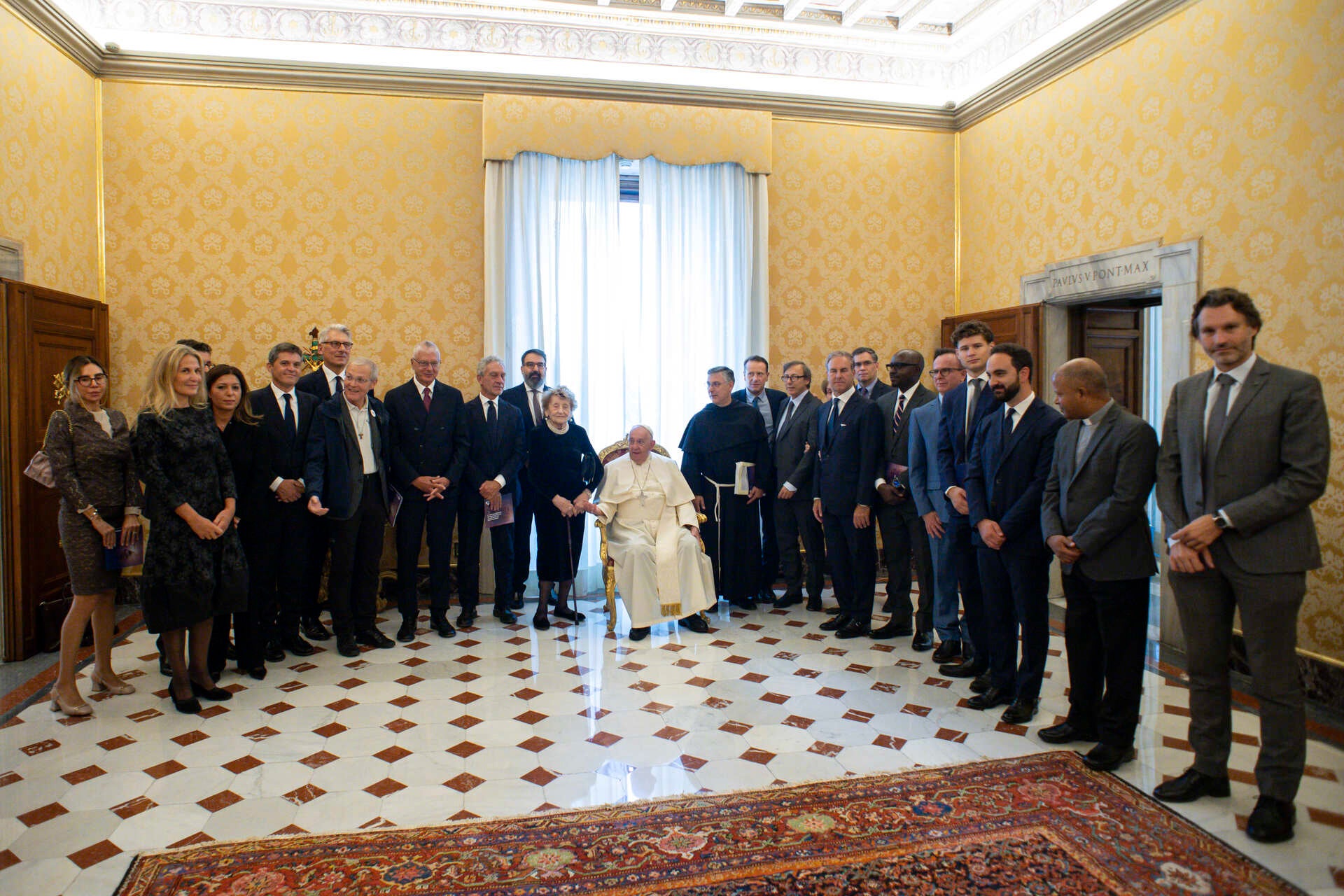
Georgetown’s Global Health Institute is joining a new initiative led by Pope Francis that will create a worldwide network to provide medical care to children and support health care workers in the field.
The Vatican announced the Pope’s Global Alliance for the Health and Humanitarian Care of Children — a “genuine humanitarian community,” Pope Francis said — following a meeting with leaders from Georgetown and other participating organizations on Sept. 19.
“Children are the seeds of our future. With children, we can build a new world,” Pope Francis said as he welcomed the leaders to the Vatican.
Georgetown’s initial role in the initiative will be to provide technical support, sharing guidance and best practices so that participating hospitals from all over the world are best positioned to plan, receive and provide comprehensive care to children.
Dr. Norman J. Beauchamp Jr., executive vice president for health sciences, attended the event on behalf of Georgetown along with Global Health Institute Director Deus Bazira and Dr. Michael Donnelly, chair of the Georgetown Department of Pediatrics.
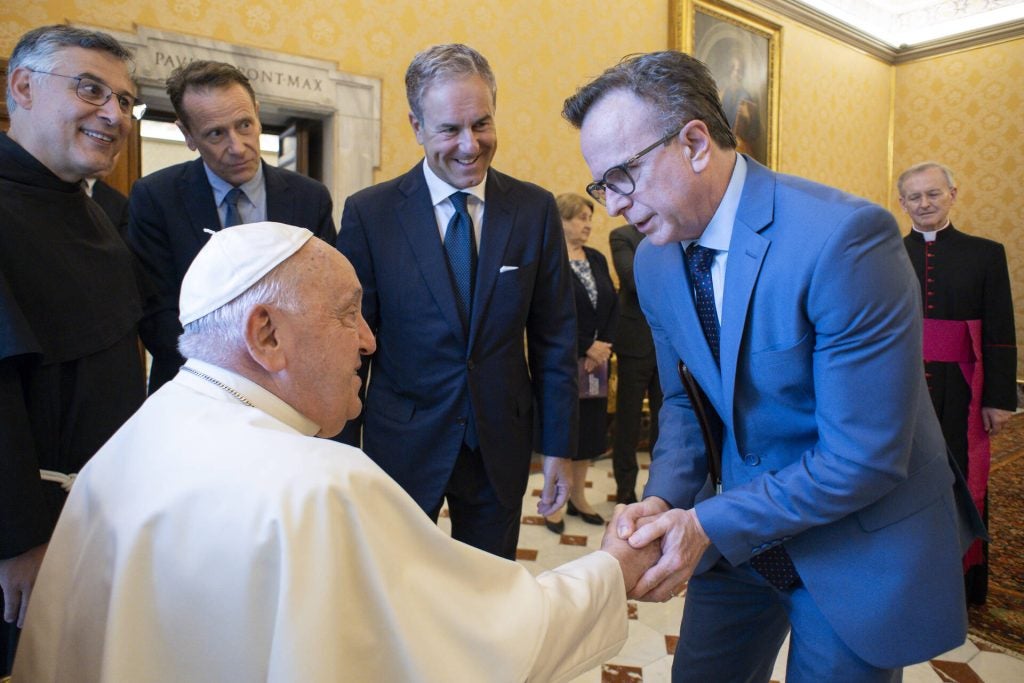
“There are so many children who are suffering in silence, and many organizations who are positioned to bring hope and healing to them,” said Beauchamp. “Georgetown has a recognized expertise in building in-country capacity. It’s creating this sustainability that will ensure access to best care today and into the future.”
Georgetown will also offer guidance on the initiative’s delivery model design and support the design of its impact-measurement framework, including how it can be sustained long-term, Bazira said.
“We’ll share best practices for how to enhance the pediatric care delivery ecosystem so that participating hospitals from different regions of the world are best positioned to plan, receive and provide comprehensive care to children wherever they may be,” said Bazira, who also directs the Georgetown Center for Global Health Practice and Impact, a well-established center engaged in the generation and translation of scientific evidence into policy and practice in numerous countries.
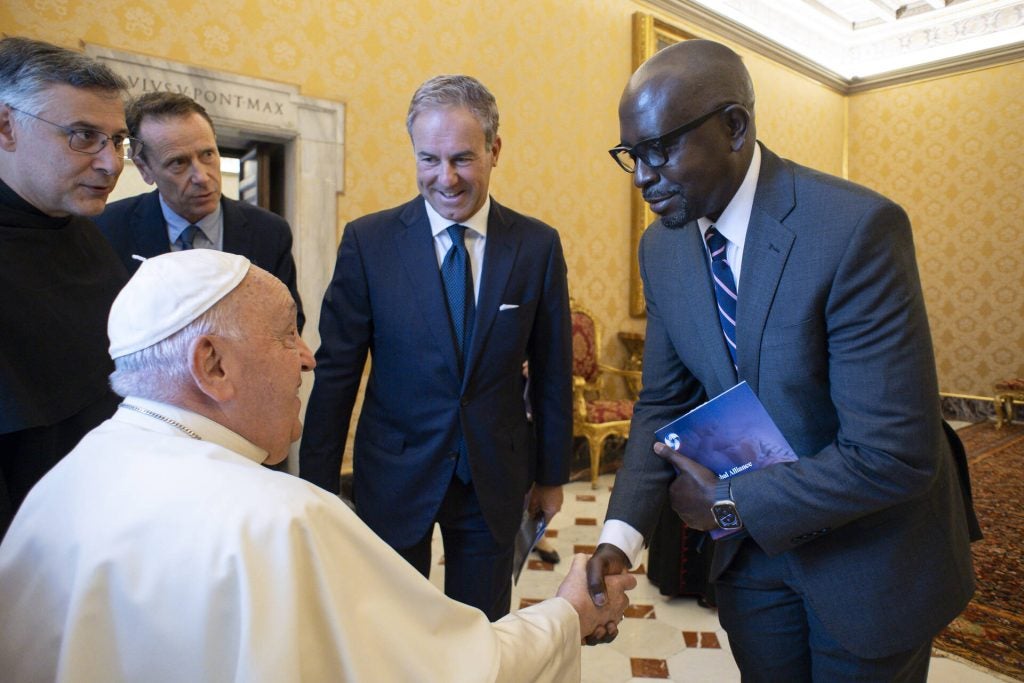
“We know from experience and evidence that these types of networks are strongest and most successful when they are community-centered and communities lead in identifying their needs and how best we can support them,” he said.
Georgetown will work closely with the initiative’s organizer, Patrons of the World’s Children Hospital, a U.S.-based nonprofit that is responsible for raising awareness, fundraising and coordinating the global children’s health network. The nonprofit will also identify new collaborative opportunities and build relationships with partner organizations.
“There are countless children in desperate need of medical care around the world,” Fabrizio Arengi Bentivoglio, president of the Patrons of the World’s Children Hospital, said in a press release. “While there are organizations that respond to emergencies when the global spotlight is on, such as governments, the United Nations, WHO and various foundations, there are hundreds of thousands of children in less visible areas … who lack the protection mechanisms they desperately require.”
The Vatican says the initiative will operate using a “hub and spoke” system with the “hubs” being centers of medical excellence around the world, providing expertise and care to the “spokes” — smaller health care facilities in underserved regions where medical needs are unmet — with an overall goal of creating sustainability.
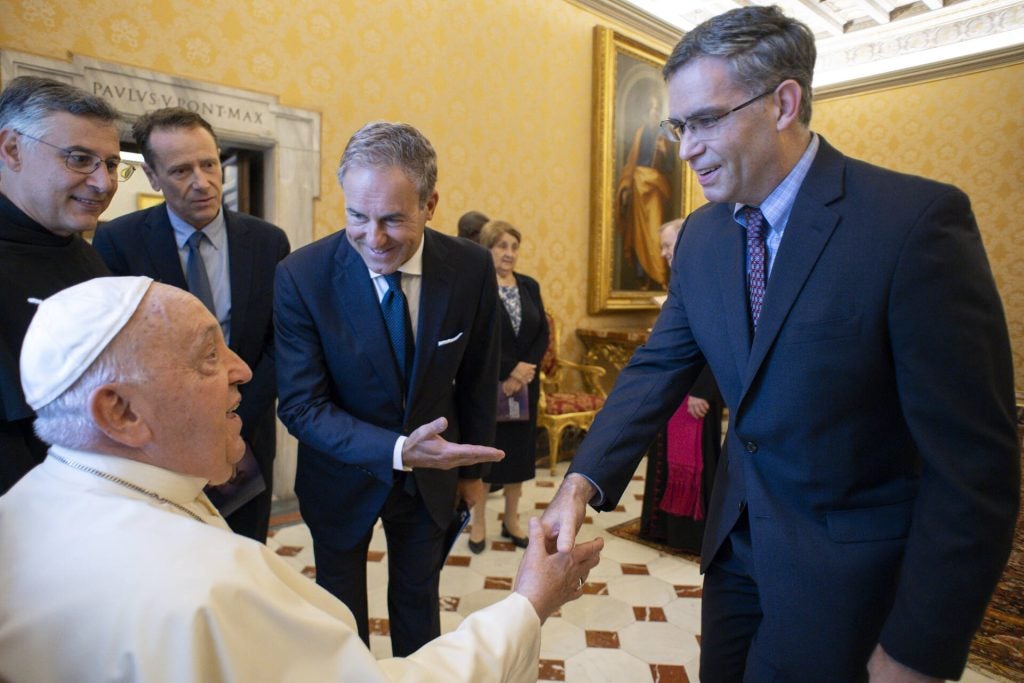
The connection between the hubs and spokes reportedly will be facilitated by a multilingual digital platform integrated with telehealth services.
“Serious injuries caused by conflicts, infectious disease, malnutrition, non-communicable disease rob the world’s children and their families of joy and well-being,” said Donnelly, who helps lead the Georgetown Collaborative for Research and Education to Advance Children’s Health. “They deserve high-quality medical attention and we have the will to make that happen.”
The first hub will be the Vatican’s Bambino Gesù Pediatric Hospital, also known as “the Pope’s hospital.”
“There are incurable diseases, but there are no incurable children,” Pope Francis said to the group gathered at the Vatican.
“There is much work to be done, and scaling up needs to happen quickly to meet the Vatican’s goals,” said Bazira. He joined Chelsea Clinton and other initiative leaders at the Clinton Global Initiative 2024 Annual Meeting on Sept. 24 as Bentivoglio announced the initiative during the Health Equity for All session.
Georgetown’s participation in this new initiative builds on its recent work to address critical issues in children’s and maternal health worldwide. GUCHI recently launched the Global Maternal & Child Health Collaborative in partnership with the Georgetown Collaborative for Research and Education to Advance Children’s Health, and will seek to draw on expertise and engagement from across the university to improve health outcomes for mothers and children.
“We look forward to engaging our Georgetown colleagues and students as we build support for this very important work,” Bazira said.
Editor’s Note: The top featured photo is courtesy of ©Vatican Media. For more information about the initiative, Georgetown faculty, staff and students can email [email protected].
link





